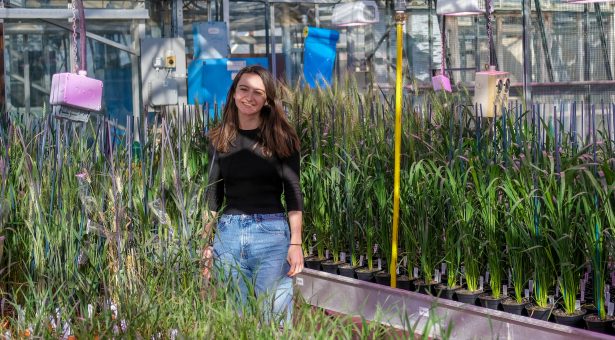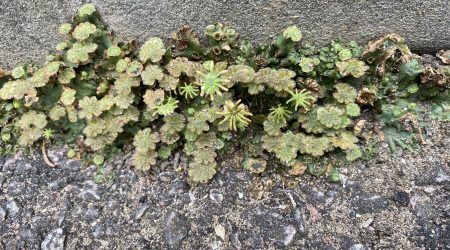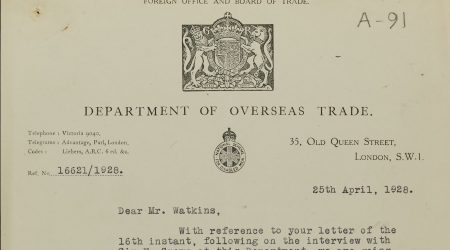The importance of communication in plants and humans; Introducing Student Voice co-chair Emma Raven

Rotation PhD student Emma Raven joined our Rotation PhD programme, run in collaboration with The Sainsbury Laboratory, in 2020.
Emma co-chairs the Student Voice with Josh Waites, and is currently working on plasmodesmata and plant communication. We asked Emma about her project, and the importance of communication in cells, and in the student community.
“There’s a whole community of PhD students at the John Innes Centre, and so for me, the Student Voice is about making a space to express ourselves and support each other, while at the same time just having some fun and relaxing.
It has been hard finding ways to keep in touch during the pandemic, but we’re finding new ways to keep the active.
Joining the Student Voice Committee/John Innes Centre in the middle of the pandemic hasn’t been without its challenges, especially on the social side of things.
One of the hardest parts has been meeting other PhD students, as it is much more difficult to connect with people virtually, but we have had some good online socials.
As a committee, we’re planning on switching some of the events that were popular pre-pandemic to an online format. I’m also organising a Welfare Week in March with the aim of helping students and staff find time for some self-care through a mix of yoga, art and mindfulness.
In my first few months here I have realised how easy it is to become absorbed in your research that you forget to take time to relax. Welfare Week is a great opportunity to promote wellbeing and give everyone a chance to relax for a moment.
Through the pandemic the John Innes Centre has been great. Social distancing measures, safe working requirements and space booking systems mean I’ve been able to continue my research projects.
I feel very fortunate that we’re able to continue our research during a global pandemic, and that’s down to the people at the institute who have worked so hard to keep the workplace and all the staff and students safe.
In terms of my own research, I’m in my first year of the Rotation PhD programme, and currently on my second rotation in Christine Faulkner’s group, which focuses on cell-to-cell communication.
I have been looking at the channels that connect plant cells, called plasmodesmata. These channels connect the cytoplasm of neighbouring cells, enabling the flow of molecules between them.
Plasmodesmata are dynamically regulated and can open or close in response to different abiotic and biotic stresses.
One question we have is how do plasmodesmata respond to different stresses?
Plants must balance the benefits from keeping their channels of communication open with potential losses they could face from environmental stress.
In particular, I have been focusing in on how plants regulate these channels in response to the threat of fungal pathogens.
Being on the Rotation PhD Programme has given me the opportunity to explore different areas of research at the John Innes Centre and The Sainsbury Laboratory.
I did my first rotation in the Matthew Moscou group at The Sainsbury Laboratory looking into the genetics underlying resistance to fungal pathogens in barley. I’ll soon start my third rotation on starch granule initiation in David Seung’s lab.
Doing rotations is such a great way of exploring the diverse areas of research across the institute. There’s such a huge diversity of projects to choose from.
Also, an advantage of doing rotations is being able to learn from so many people from different parts of the John Innes Centre and The Sainsbury Laboratory. I feel I’ve gained so much from just talking to different people.
Before I started my PhD I was did my undergraduate degree in Biological Sciences at Oxford University. I quickly realised that I was more interested in the plant biology than animal, especially after several worm dissections.
At the end of my first year I spent the summer at the Institute of Genomic Biology in Illinois, where they work on improving photosynthetic efficiency in crops. There I realised the potential role plant sciences could play in improved food security and knew I wanted to be part of that in some way.
After my undergraduate degree I was keen to continue in research, but I wasn’t sure where or what exactly. That’s why I applied for the Rotation PhD programme, I thought it would be a great opportunity to explore different areas and gain experience in different techniques before choosing my final PhD project.
When I was researching into different PhD programmes, I was looking specifically at rotation programmes because I wanted the opportunity to explore different research areas.
I remember thinking that the John Innes Centre Rotation Programme seemed ideal for me as there was so much research going on across a whole range of different research areas.
I had also heard that student community at the John Innes Centre was really vibrant, with lots going on and plenty of opportunities to share your research with other students.
Plus, I was also really attracted to Norwich as a place to live. When I first came to visit, the city centre seemed lovely with plenty of cafes, shops and restaurants. Even throughout lockdown, I’ve enjoyed exploring the parks and surrounding countryside.
I can definitely see myself building a career in plant science, in some shape or form. In the short time I have been a part of this programme I have already been exposed to many areas of research that appeal to me.
Going forwards, I’m planning on taking every opportunity to try new experiences and explore new areas of science, so who knows where that will take me.”
Emma Co-Chairs the PhD voice with Josh Waites. She is a student on our Rotation PhD programme.



